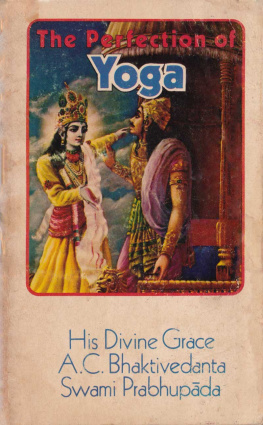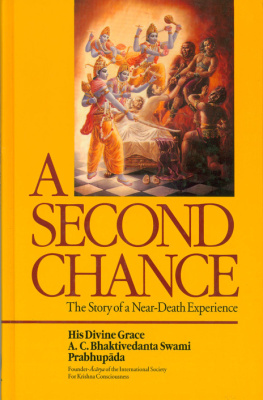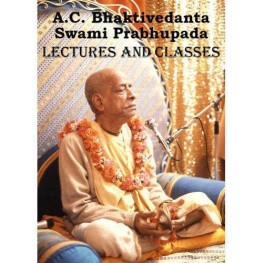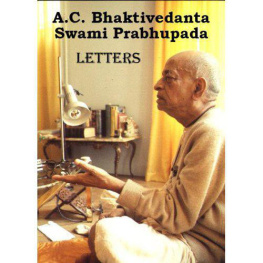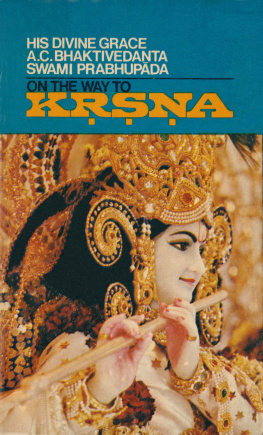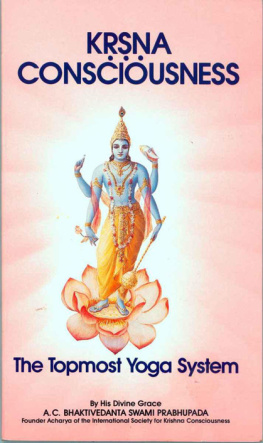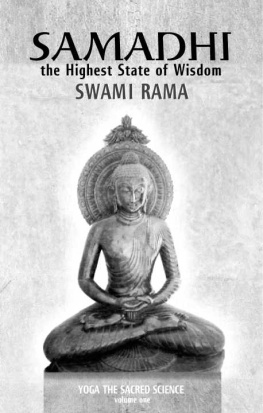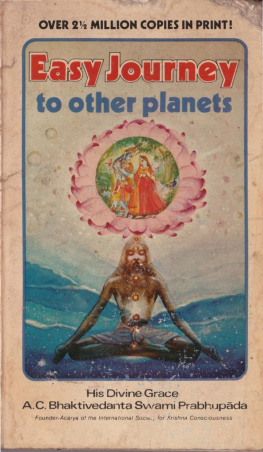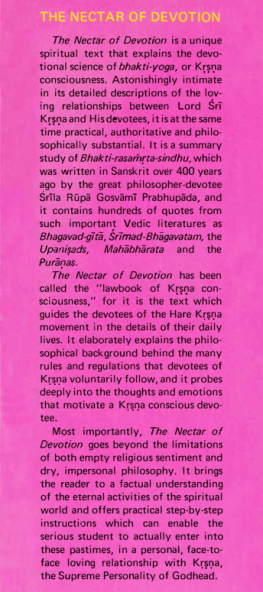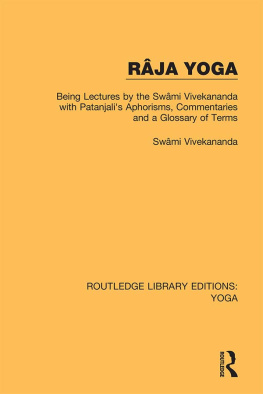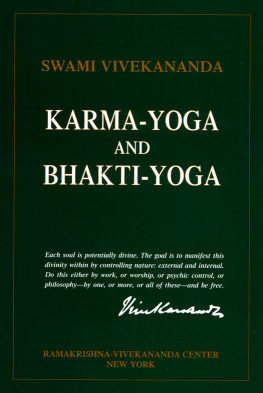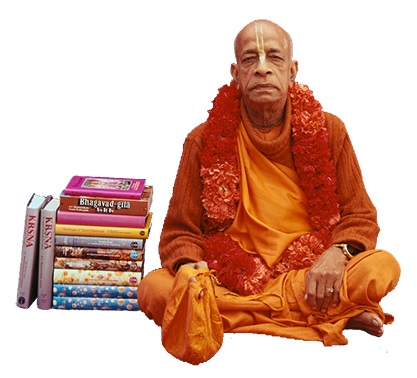This free for download ebook is a direct reproduction of the original bona fide personally approved and blessed by Srila Prabhupada.
This ebook was made by the official website for Srila Prabhupada's original books:
Krishnapath.org
All the content was directly taken from the original scans, is unchanged and intact.
More free downloads at:
www.krishnapath.org
The Perfection of Yoga
His Divine Grace
A.C. Bhaktivedanta Swami Prabhupda
Founder-crya of the International Society for Krishna Consciousness
ISKCON Press, New York
Table of Content
Contents
1972 by ISKCON PRESS. All rights reserved
Library of Congress Catalogue Card No. 72-76302
ISBN 0-912776-36-6
Readers interested in the subject matterof this
book are invited bythe International Society for
Krishna Consciousnessto correspond with its Secretary.
International Society for Krishna Consciousness
3826 Willat Avenue
Culver City, California 90230
First Printing: 30,000 copies
Second Printing: 100,000 copies
Printed in the United States of America
Chapter 1. Yoga As Reestablishing Relations With Krsna
1
Yoga As
Reestablishing
Relations With Ka
We have heard many times of the yoga system. The yoga system is approved by Bhagavad-gt, but the yoga system in Bhagavad-gt is especially meant for purification. The aim is threefold: to control the senses, to purify activities and to link oneself to Ka in a reciprocal relationship.
The Absolute Truth is realized in three stages: impersonal Brahman, localized Paramtm (Supersoul) and ultimately Bhagavn, the Supreme Personality of Godhead. In the final analysis, the Supreme Absolute Truth is a person, and simultaneously He is the all-pervading Supersoul within the hearts of all living entities and within the core of all atoms, and He is the brahmajyoti or the effulgence of spiritual light as well. Bhagavn r Ka is full of all opulence as the Supreme Personality of Godhead, but at the same time He is full of all renunciation. In the material world we find that one who has much opulence is not very much inclined to give it up, but Ka is not like this. He can renounce everything and remain complete in Himself.
When we read or study Bhagavad-gt under a bona fide spiritual master we should not think that the spiritual master is presenting his own opinions. It is not he who is speaking. He is just an instrument. The real speaker is the Supreme Personality of Godhead who is both within and without. At the beginning of His discourse on the yoga system in the Sixth Chapter of Bhagavad-gt, r Ka says,
anrita karma-phala
karya karma karoti ya
sa sannys ca yog ca
na niragnir na ckriya
One who is unattached to the fruits of his work and who works as he is obligated is in the renounced order of life, and he is the true mystic; not he who lights no fire and performs no work. (Bg. 6.1) Everyone is working and expecting some result. One may ask What is the purpose of working if no result is expected? A remuneration or salary is always demanded by the worker. But here Ka indicates that one can work out of a sense of duty alone, not expecting the results of his activities. If one works in this way, then he is actually a sannys; he is in the renounced order of life.
According to Vedic culture, there are four stages of life: brahmacr, ghastha, vnaprastha and sannysa. Brahmacr is student life devoted to training in spiritual understanding. Ghastha life is married householder life. Then upon reaching the approximate age of fifty, one may take the vnaprastha order-that is, he leaves his home and children and travels with his wife to holy places of pilgrimage. Finally he gives up both wife and children and remains alone to cultivate Ka consciousness, and that stage is called sannysa, or the renounced order of life. Yet Ka indicates that for a sannys, renunciation is not all. In addition, there must be some duty. What then is the duty for a sannys, for one who has renounced family life and no longer has material obligations? His duty is a most responsible one; it is to work for Ka. Moreover, this is the real duty for everyone in all stages of life.
In everyone's life there are two duties: one is to serve the illusion, and the other is to serve the reality. When one serves the reality, he is a real sannys. And when one serves the illusion, he is deluded by my. One has to understand, however, that he is in all circumstances forced to serve. Either he serves the illusion or the reality. The constitutional position of the living entity is to be a servant, not a master. Everyone in the material world is a servant; no one is master. One may think that he is the master, but he is actually a servant. When one has a family he may think that he is the master of his wife, or his children, or his home, business and so on, but that is all false. One is actually the servant of his wife, of his children and of his business. The president may be considered to be the master of the country, but actually he is the servant of the country. Our position is always as servanteither as servant of the illusion or as servant of God. If, however, we remain the servant of the illusion, then our life is wasted. Of course everyone is thinking that he is not a servant, that he is working only for himself. Although the fruits of his labor are transient and illusory, they force him to become a servant of illusion or a servant of his own senses. But when one awakens to his transcendental senses and actually becomes situated in knowledge, he then becomes a servant of the reality. When one comes to the platform of knowledge, he understands that in all circumstances he is a servant. Since it is not possible for him to be master, he is much better situated serving the reality instead of the illusion. When one becomes aware of this, he attains the platform of real knowledge. By sannysa, the renounced order of life, we refer to one who has come to this platform. Sannysa is a question of realization, not social status.
It is the duty of everyone to become Ka conscious and to serve the cause of Ka. When one actually realizes this he becomes a mahtm, or a great soul. In Bhagavad-gt Ka says that after many births, when one comes to the platform of real knowledge, he surrenders unto Me. Why is this? Vsudeva sarvam iti. The wise man realizes that Vsudeva [Ka] is everything. However, Ka says that such a great soul is rarely found. Why is this? If an intelligent person comes to understand that the ultimate goal of life is to surrender unto Ka, why should he hesitate? Why not surrender immediately? What is the point in waiting for so many births? When one comes to that point of surrender, he becomes a real sannys. Ka never forces anyone to surrender unto Him. Surrender is a result of love, transcendental love. Where there is force and where there is no freedom, there can be no love. When a mother loves a child, she is not forced to do so, nor does she do so out of expectation of some salary or remuneration.
Similarly, we can love the Supreme Lord in so many wayswe can love Him as master, as friend, as child or as husband. There are five basic rasas or relationships in which we are eternally related to God. When we are actually in the liberated stage of knowledge, we can understand that our relationship with the Lord is in a particular

